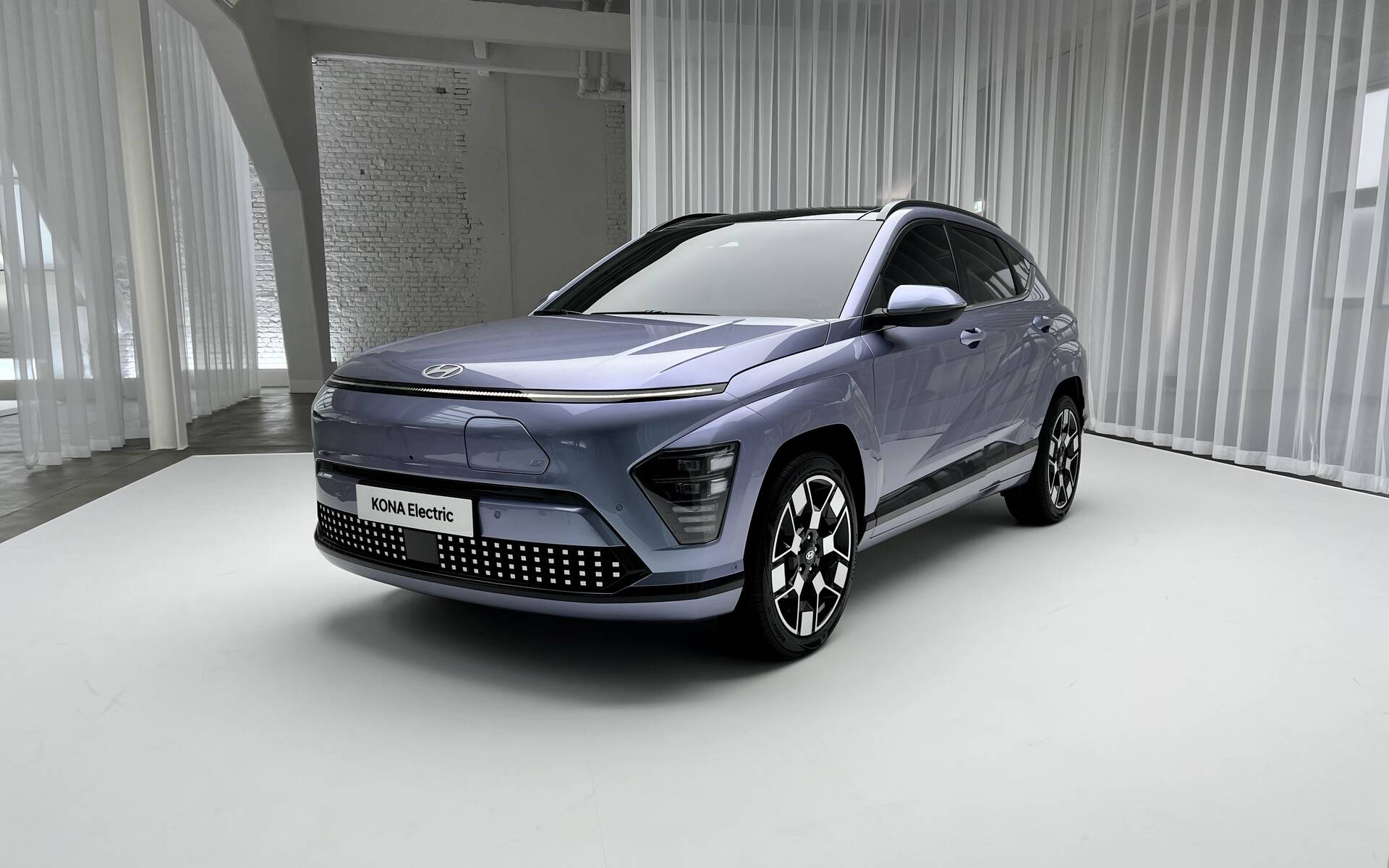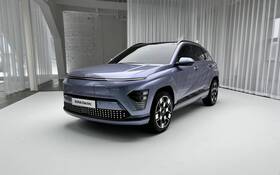2024 Hyundai Kona: EV Leads the Way
Berlin, Germany—Hyundai’s second-generation Kona puts the EV model at the forefront of styling. It’s the opposite of what the company did with the first generation, which was designed as a gasoline model first and then adapted to the electric variant.
The two will continue to coexist while Hyundai’s EV offensive expands with the addition of the IONIQ 6 sedan and eventually the IONIQ 7 three-row crossover.
- Also: 2024 Hyundai Kona Shows Bold New Look in First Official Pics
- Also: 3 Good Reasons to Buy a Used Hyundai Kona
From Hyundai’s standpoint, it makes perfect sense to focus on the Kona EV this time around, even though it must be said that the architecture and available powertrains are carried over from the outgoing Kona, with only minor upgrades.

Larger and Roomier
In order to provide maximized living space for customers, the all-new 2024 Hyundai Kona has grown to 4,355 mm in length, which is 150 mm longer than before, based on the EV variant. It also gained 25 mm in width and 60 mm in wheelbase. The drag coefficient is 0.27.
The front end is highlighted by the stretched Seamless Horizon Lamp, which is pixelated on the Kona EV to create a direct connection with the IONIQ 6. There’s a trunk under the hood, active shutters that maximize cooling, and a charging door that is both illuminated and heated to make charging easier in the dark or during winter.
Meanwhile, the gas-powered Kona N Line stands out with optional black side mirrors and roof, wing-type spoiler, more aggressive front and rear designs with wing-shaped bumper to emphasize a lower stance, distinctive 19-inch alloy wheels, twin muffler and silver side skirts.

What’s the Range?
Customers in select markets will have a choice of two batteries, but all Canadian-spec Kona EV models will rely on the larger 65.4kWh pack to feed the 215-horsepower motor. In this configuration, maximum range is estimated at 490 km based on the World Light-Vehicle Test Procedure (WLTP), with the vehicle averaging 17.2 kWh/100 km.
The U.S. Environmental Protection Agency (EPA) will post its own rating at a later date. Same thing for Natural Resources Canada. Expect something around 420-430 km. Hyundai claims the battery can charge from 10-80 percent in 41 minutes when using a 100kW DC fast charger (that’s all the power it can handle, by the way).
A system makes it possible to precondition the battery to optimize charging in cold temperatures, which is great. What’s more, the Kona EV is equipped with Vehicle To Load (V2L) technology, allowing users to power electronic devices and small appliances with said battery.

There are three levels of regenerative braking to choose from, with the most aggressive one enabling one-pedal driving (braking is achieved as soon as the driver releases the throttle). An adaptive regen mode even modulates kinetic energy recuperation based on the flow of traffic.
Dual Displays
The interior of the 2024 Hyundai Kona features a pair of 12.3-inch digital displays for driving data and infotainment functions. The graphics are improved and most of the controls used by the driver are positioned closer to the steering wheel, thus freeing up space on the centre console to incorporate rotating cup holders, among other things.

The front seats are now 30 percent slimmer, which contributes to 77 mm of extra legroom for rear passengers. Cargo capacity is said to be 466 litres with the rear seats up, but that is not the official North American figure (the outgoing model has 544 litres).
The Kona N Line gets aluminum-style pedals, while its turbocharged 1.6-litre four-cylinder engine is now mated to an eight-speed automatic transmission. Base Konas retain the naturally aspirated 2.0-litre engine and CVT.
Digital Key
Many new technologies are available with the next-generation Kona including Digital Key Touch 2 which allows drivers to lock or unlock the doors using their smartphone or smartwatch. The eight-speaker Bose audio system will delight music lovers, while the surround-view monitor provides a view around the vehicle to facilitate parking manoeuvres. On top of that are a host of advanced safety features, some of which are often missing in competitors.

Following its North American debut at the New York Auto Show in April, where we expect pricing details to be announced, the new 2024 Hyundai Kona will go on sale in Canada in late summer, starting with the gas models and then the EV variant. Somewhere in the middle, we’ll get the opportunity to take it for a first test drive, so don’t miss our review.












